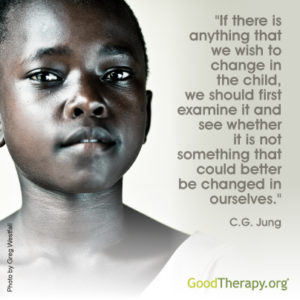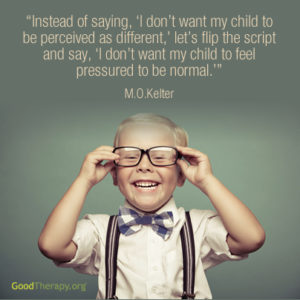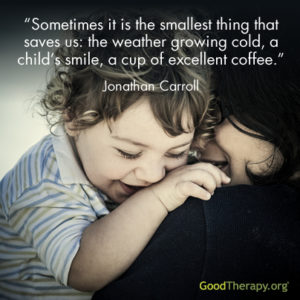Parental Perspectives: 8 Quotes About Raising Children
Children are a significant part of most parents’ lives. While the act of parenting is not always easy, most parents feel it is worthwhile. Some research indicates having children can increase well-being. It is more likely to do so if raising the child contributes a sense of meaning and purpose to the parent’s life.
Some of these quotes describe the joy of being a parent. Others reveal insights about its challenges. Psychologists often speak to the subject of children and parents. This is because parents have such great influence over how their children may grow and develop.
If you are a parent yourself or have been impacted by parents or parental figures, these quotes are for you. Share a quote with someone close to you or join the conversation on Facebook or Twitter!

“If there is anything that we wish to change in the child, we should first examine it and see whether it is not something that could better be changed in ourselves.” -C. G. Jung

“Instead of saying, ‘I don’t want my child to be perceived as different,’ let’s flip the script and say, ‘I don’t want my child to feel pressured to be normal.'” -M. O. Kelter

“Sometimes it is the smallest thing that saves us: the weather growing cold, a child’s smile, a cup of excellent coffee.” -Jonathan Carroll
“Instead of raising children who turn out okay despite their childhood, let’s raise children who turn out extraordinary because of their childhood.” -L. R. Knost
“What it’s like to be a parent: It’s one of the hardest things you’ll ever do, but in exchange, it teaches you the meaning of unconditional love.” -Nicholas Sparks
“When we love, we always strive to become better than we are. When we strive to become better than we are, everything around us becomes better, too.” -Paulo Coelho
“It is especially important for us to realize how much our reactions affect the child’s feelings. If we become upset … we increase the youngster’s sense of failure, of wrongdoing, his/her sense of shame and fear. To the extent that we remain calm and cheerful and can accept and explain the situation as regrettable and to be avoided when possible but a natural part of growing up, we lessen the child’s fear and reinforce his/her feeling of his/her own worth.” -Switzer and Hirchberg
“It’s not our job to toughen our children up to face a cruel and heartless world. It’s our job to raise children who will make the world a little less cruel and heartless.” -L. R. Knost
Good parents can prepare future generations to live functional and meaningful adult lives. A childhood lacking in parental support may result in trauma that echoes through generations.
Parenting often focuses on the bond between parent and child. The nature of this relationship can be tumultuous. Toddlers may cause stress through their often messy tendencies. Teens may push back against even reasonable boundaries. Mental health issues may also complicate these relationships.
If parenting is causing you distress, a therapist may help. Reaching out to a therapist about parenting matters does not mean you have failed as a parent. If anything, it means you are taking necessary steps to ensure the healthiest outcome for your child and family. Many people grow up with bad or abusive parents. Acting out negative parenting examples only passes the problem on. Therapy may allow parents to confront these patterns. Therapists can help parents learn new, healthy parenting skills. Parents may then be less likely to repeat a negative cycle of behavior toward their children.
Reference:
Nelson, S. K., Kushlev, K., & Lyubomirsky, S. (2013). The pains and pleasures of parenting: When, why, and how is parenthood associated with more or less well-being? Psychological Bulletin, 3(140), 846-895. doi: 10.1037/a0035444
© Copyright 2007 - 2025 GoodTherapy.org. All rights reserved.The preceding article was solely written by the author named above. Any views and opinions expressed are not necessarily shared by GoodTherapy.org.